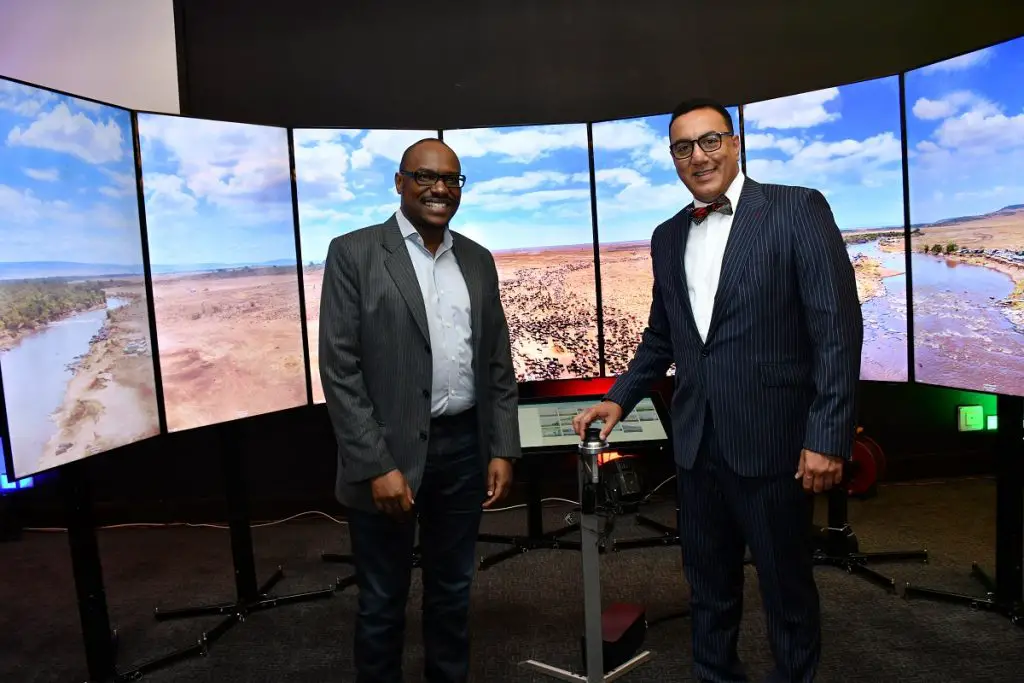Google has launch Street View for Kenya’s 21 national parks and one conservancy in a move aimed at boosting the country’s tourism sector by encouraging visitor numbers to the parks.
Capturing Street View imagery of these national parks and one conservancy was done through a collaboration between Google, the Ministry of Tourism, Kenya Wildlife Services, the County Governments of Narok and Samburu and the management of Ol Pejeta Conservancy.
Street View is a 360-degree ground-level imagery layer found on Google Maps.
Exploring landmarks, navigating trips
Users are able to remotely explore landmarks, navigate a trip, explore the streets of cities and towns, and visit other places of interest from around the world.
In Kenya, imagery has already been published for major cities, towns, roads and other places of interest. Capturing of the national parks imagery was the second phase.
Cabinet Secretary for Tourism and Wildlife Najib Balala who spoke at the launch said that Google Street View will bring Kenya to the world.
This is by providing a global audience with tools to virtually explore Kenya’s cities, other urban centres, attractions and places of interest; and “by growing a user’s interest to physically visit a place of interest that they have experienced virtually.”
Kenya Wildlife Service (KWS) is currently positioning its National Parks and Reserves on the global map as ideal destinations for adventure, wildlife safaris, sight-seeing, marine experiences and the rich cultural experiences.
Street View is expected to improve KWS’s brand identity, develop a ready and accessible information hub for customers, better target audience reach, and build a virtual shop for KWS products.
Video tourism ad
Charles Murito, Google Kenya Country Director said that this launch places emphasis on the impact that Google products and platforms have in helping Kenyans and empowering them to build and grow their businesses in order to create economic growth.
“Tourism is a vital contributor to our GDP and I believe that we at Google can play an active part to help grow this sector through our products. This can be in the form of showcasing the sites that Kenya has to offer, to providing targeted advertising in order to reach interested travellers,” he stressed.
“With 82 per cent of travellers undecided on a destination and 74 per cent of them starting their research or inspiration online, it’s critical that we have Kenya online. Millward Brown study found that with exposure to a video tourism ad, travellers are 6 times more likely to book,” Murito added.
The parks whose imagery have been published are the Maasai Mara; Amboseli; Nairobi National Park; Mount Kenya; Hell’s Gate; Samburu National Reserve and Ol Pejeta Conservancy.
The others are as follows – Chyulu Hills National Park, Lake Nakuru National Park, Meru National Park, Mount Longonot, Ol Donyo Sabuk, Sibiloi, Tsavo West/East, Bisanadi National Reserve, Aberdare National Park, Saiwa Swamp National Park, Mount Elgon, Kakamega Forest National Reserve, Ruma National Park, and Shimba Hills National Reserve.
Exploiting Africa’s online riches
This project by Google becomes one of its many others.
In July this year, Google and Facebook joined the fray of providing internet in Africa targeting the online businesses the continent is rich in.
With digitization bringing new opportunities to Africa, the continent is becoming the next frontier for Internet-based e-commerce solutions.
Across the continent, new digital businesses are emerging rapidly and growing fast.
In 2016, Facebook launched a restricted service allowing users to access a list of websites at no cost. The Free Basics platform in over 20 African countries was done in partnership with local telecoms operators.
It was hugely unpopular due to the restrictions.
On the other hand, Google has launched a free public Wi-Fi service in Lagos, Nigeria which is the largest internet market in Africa.
It is also testing Project Loon, solar-powered high-altitude balloons in a plan to beam internet to users in Kenya.
Africa is the world’s wealthiest continent in terms of natural resources and manpower providing affordable labour to multinationals on the continent.
Between 2005 and 2018, Africa recorded the highest growth in internet users globally making it a worthwhile continent to invest in.
